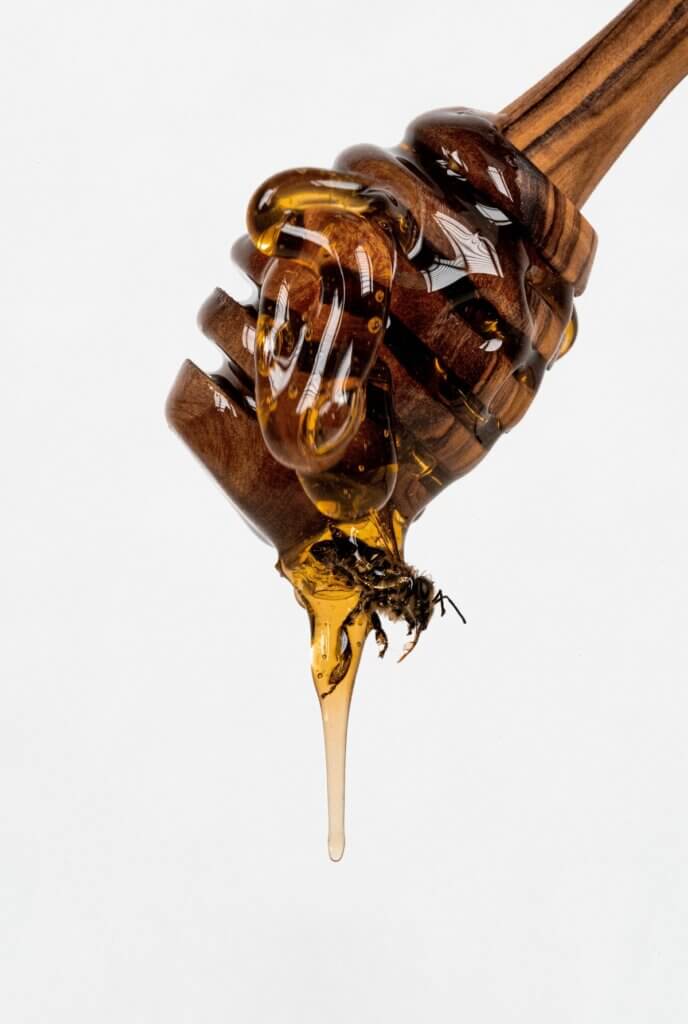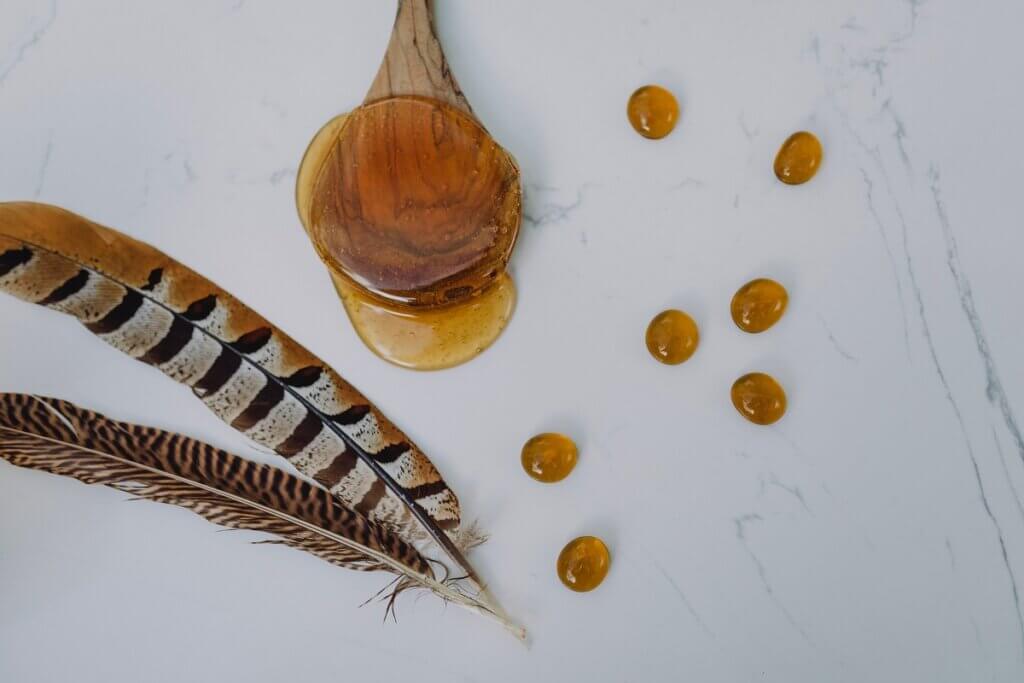Winter is here, and dryness of the skin is one of the main concerns both men and women face in cold areas. The problem gets severe for those with skin conditions like eczema.
Eczema, also known as atopic dermatitis, is a chronic skin condition characterised by dry, itchy, and flared skin. It is a common condition that affects people of all ages; it is most common in infants and children but is getting more common among young teens and adults.
The problem results from an overactive immune response, which causes inflammation and irritation in the skin. The exact causes of eczema are often unknown; it’s believed to be related to genetics and environmental factors. Find out here why skin gets flared.
Eczema can cause red, scaly, and itchy patches on the skin, and it can be a persistent and debilitating condition that affects the quality of life. While eczema has no cure, various treatments are available to manage the symptoms. One such treatment is the use of honey for eczema.
In this article, we talk about how honey has unique benefits for people with eczema.

The Benefits Of Using Honey For Eczema
Honey has been used for medicinal purposes for centuries and has been found to have anti-inflammatory, antibacterial, and antioxidant properties. These properties make honey an ideal treatment for eczema.
- Soothing – One of the main benefits of using honey for eczema is its ability to soothe and moisturise the skin. Eczema causes the skin to dry out and become itchy, and honey can help to hydrate the skin and reduce itching and potential also prevent hair loss.
- The antibacterial properties of honey also help to prevent and treat infections, which can be a common complication of eczema.
- In addition, honey has been found to have an anti-inflammatory effect, which can help to reduce redness, swelling, and pain associated with eczema in different parts of the body.
- Completely safe – another benefit of using honey for eczema is that it is a natural and safe treatment option. Many eczema treatments, such as corticosteroids, can have side effects, but honey is a natural product that is unlikely to cause any adverse reactions. It is also readily available and easy to use.
Honey should be used in conjunction with other eczema treatments, such as moisturisers, oil, shampoo with honey etc.
Using raw, unpasteurised honey is important as it contains more beneficial enzymes. It can be applied directly to the affected area or mixed with other ingredients, such as coconut oil or turmeric, to make a paste.
In conclusion, honey has been found to be an effective treatment option for eczema due to its anti-inflammatory, antibacterial, and antioxidant properties.
It is a natural and safe option that can help soothe and moisturise the skin, reduce itching, and prevent infections on the skin and scalp.
How To Properly Use Honey For Eczema Treatment
Using honey for eczema treatment can be an effective and natural way to manage the symptoms of this chronic skin condition. To properly use honey for eczema treatment, here are a few steps to follow:
- Choose the right type of honey or honey products: Using raw honey for eczema treatment is recommended. Pasteurised honey has been heated and processed, which can destroy many of the beneficial enzymes found in raw honey. Manuka honey is considered one of the best types of honey for eczema treatment due to its high levels of antibacterial activity. In addition, using good quality honey-infused products for your hair and face would be incredibly beneficial if you want to soothe skin issues.
- Cleanse the skin: Before applying honey to the eczema-affected area, it is important to cleanse the skin to remove any dirt and debris. This can be done by gently washing the area with mild soap and water. Avoid using harsh soaps or scrubs, as they can further irritate the skin.
- Apply the honey: Once the skin is clean, apply the honey directly to the eczema-affected area. A thin layer of honey is all that is needed. You can use your fingers or a cotton swab to apply the honey.
- Leave the honey on for at least 20 minutes: The honey should be left on the skin for at least 20 minutes to allow it to work effectively. This will give the honey time to penetrate the skin and provide anti-inflammatory, antibacterial, and antioxidant benefits.
- Rinse the honey off: After 20 minutes, rinse the honey off with warm water. Pat the skin dry with a clean towel.
- Repeat the treatment as needed: The treatment can be repeated as needed, but it is important not to overuse the honey as it may irritate. Using honey in conjunction with other eczema treatments, such as moisturizers is also important.
It is also worth noting that before using honey for eczema treatment, it is always best to consult with professionals, especially if you have any underlying condition or are taking any medications. This is also important if you experience allergic reactions or discomfort when using honey.

Potential Risks & Precautions When Using Honey For Eczema
While using honey for eczema treatment can be effective and natural, there are some potential risks and precautions to keep in mind.
- Allergic reactions: Some people may be allergic to honey, which can cause an allergic reaction, such as hives, itching, or difficulty breathing. It is important to do a patch test before using honey on the affected area and stop using it if allergic reactions occur. Also knowledge of types of itching can also help understanding if you have an allergic reaction or a flared skin.
- Interaction with medications: Honey may interact with certain medications, such as blood thinners, which can increase the risk of bleeding.
- Risk of contamination: Raw honey can contain bacteria or other contaminants, which can cause infections. It is important to use a reputable source of raw honey and adequately clean the skin before applying it.
- Risk of overuse: While honey is a natural and safe treatment option, it is essential not to overuse it as it may irritate.
- Honey not suitable for infants: Raw honey should not be given to infants under one year of age, as it can contain the spores of a bacteria called Clostridium botulinum, which can cause botulism in infants.
In conclusion, using honey for eczema treatment can be an effective and natural way to manage the symptoms of this chronic skin condition that lead to various skin and hair issues.
However, it is important to consider potential risks and precautions such as allergic reactions, interaction with medications, risk of contamination, and overuse.
It is always best to consult a professional dermatologist before using honey for eczema treatment. However, with the proper usage, in consultation with a dermatologist, honey can be a beneficial addition to the eczema treatment regimen.
You may also be interested in reading:
- Honey for eczema
- Natural treatments for allergic asthma
- Natural non irritant shampoos for eczema scalps
- The Shape of Skin – moving, real and raw poetry for people with eczema and sensitive skin
Photo from Pexels by Lennart Zeising
Photo from Pexels by RODNAE Productions











Leave a Reply